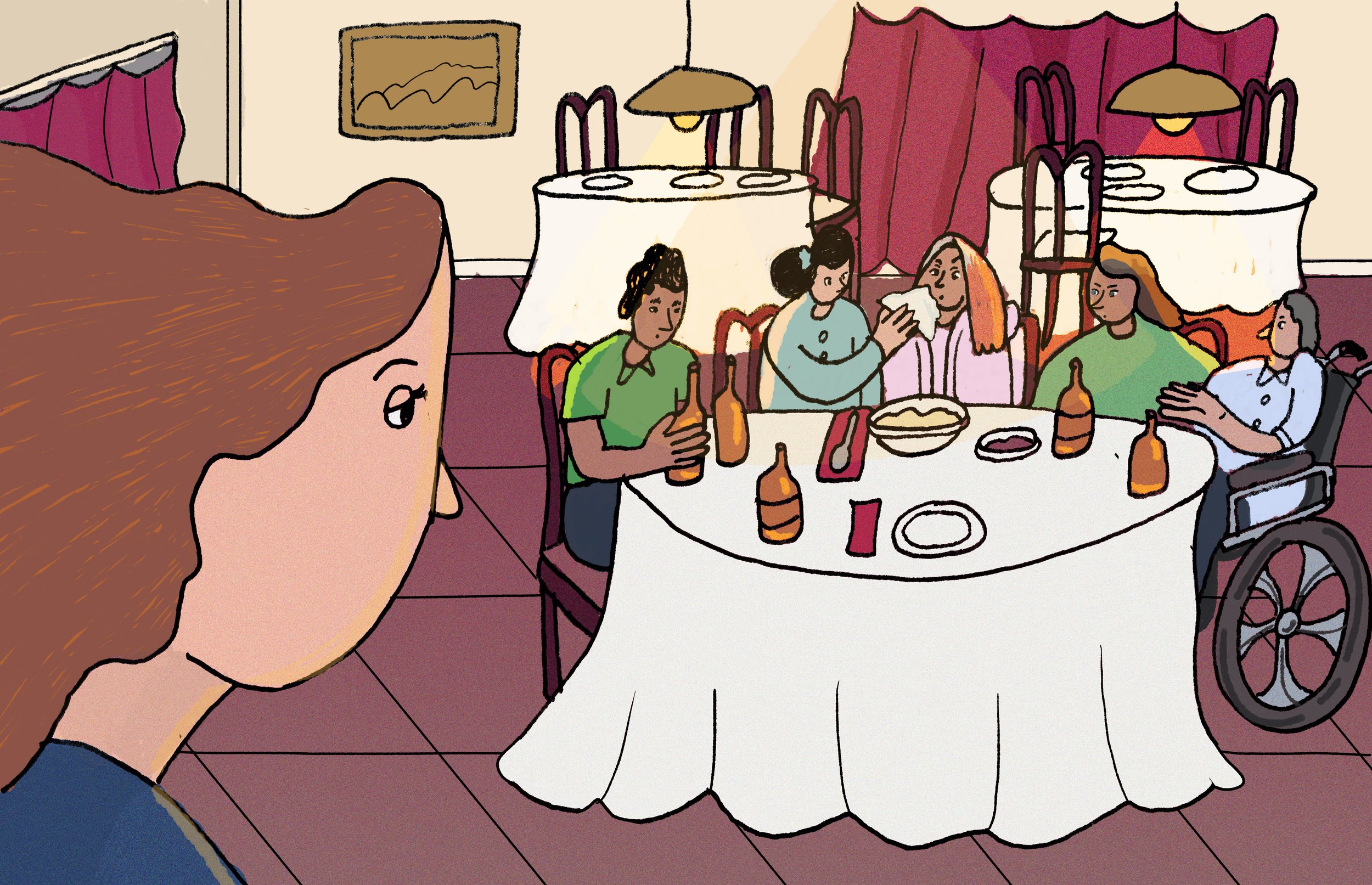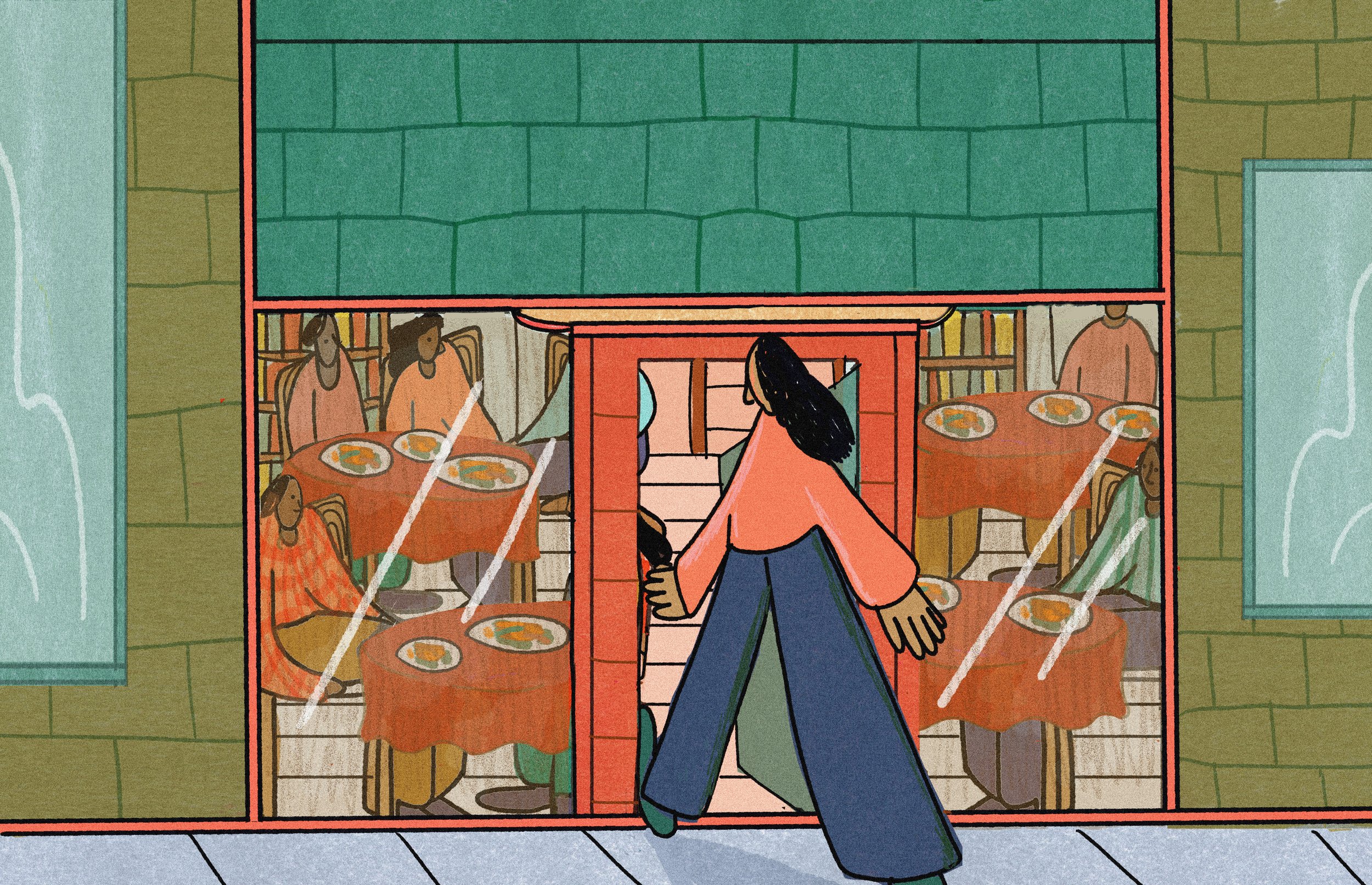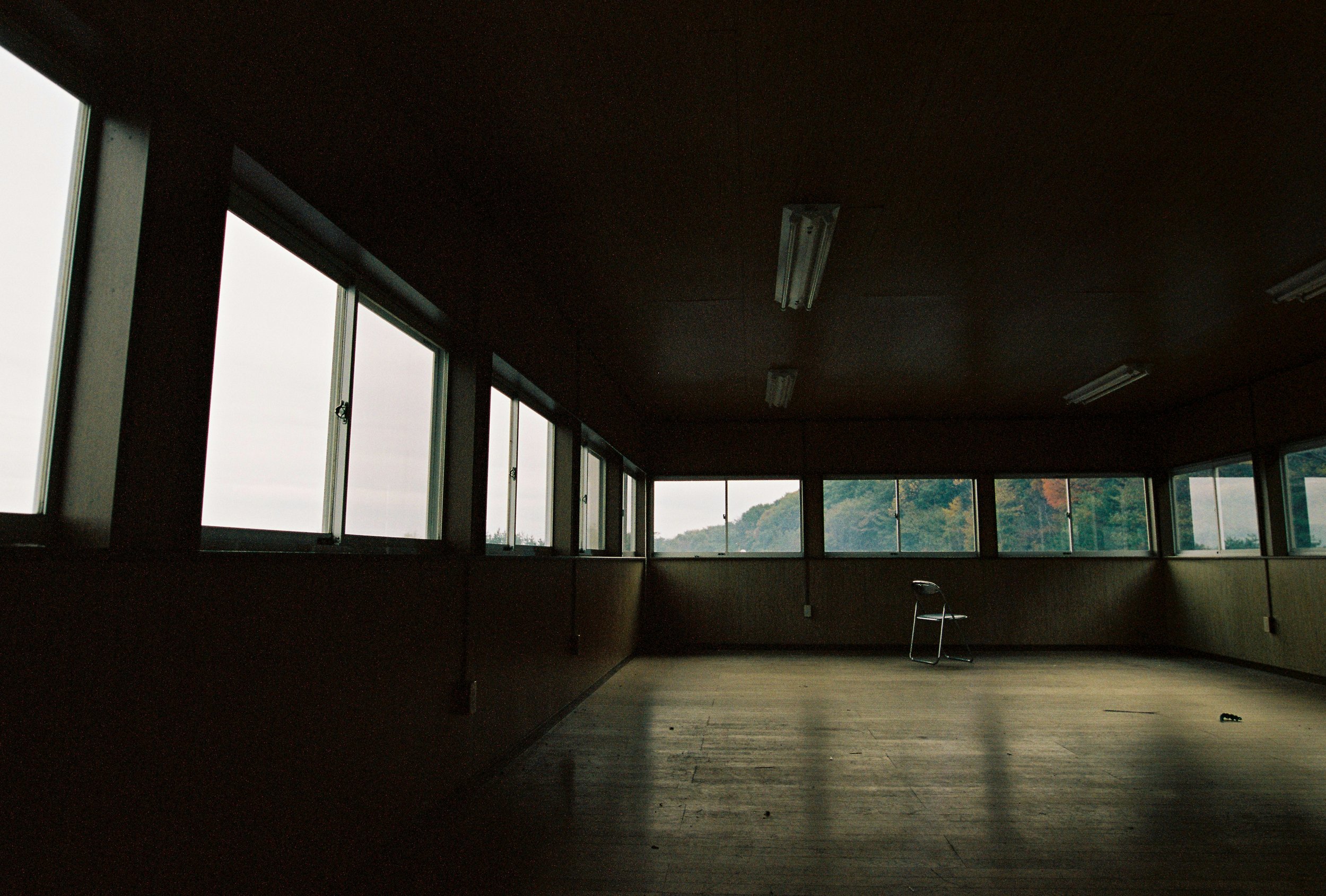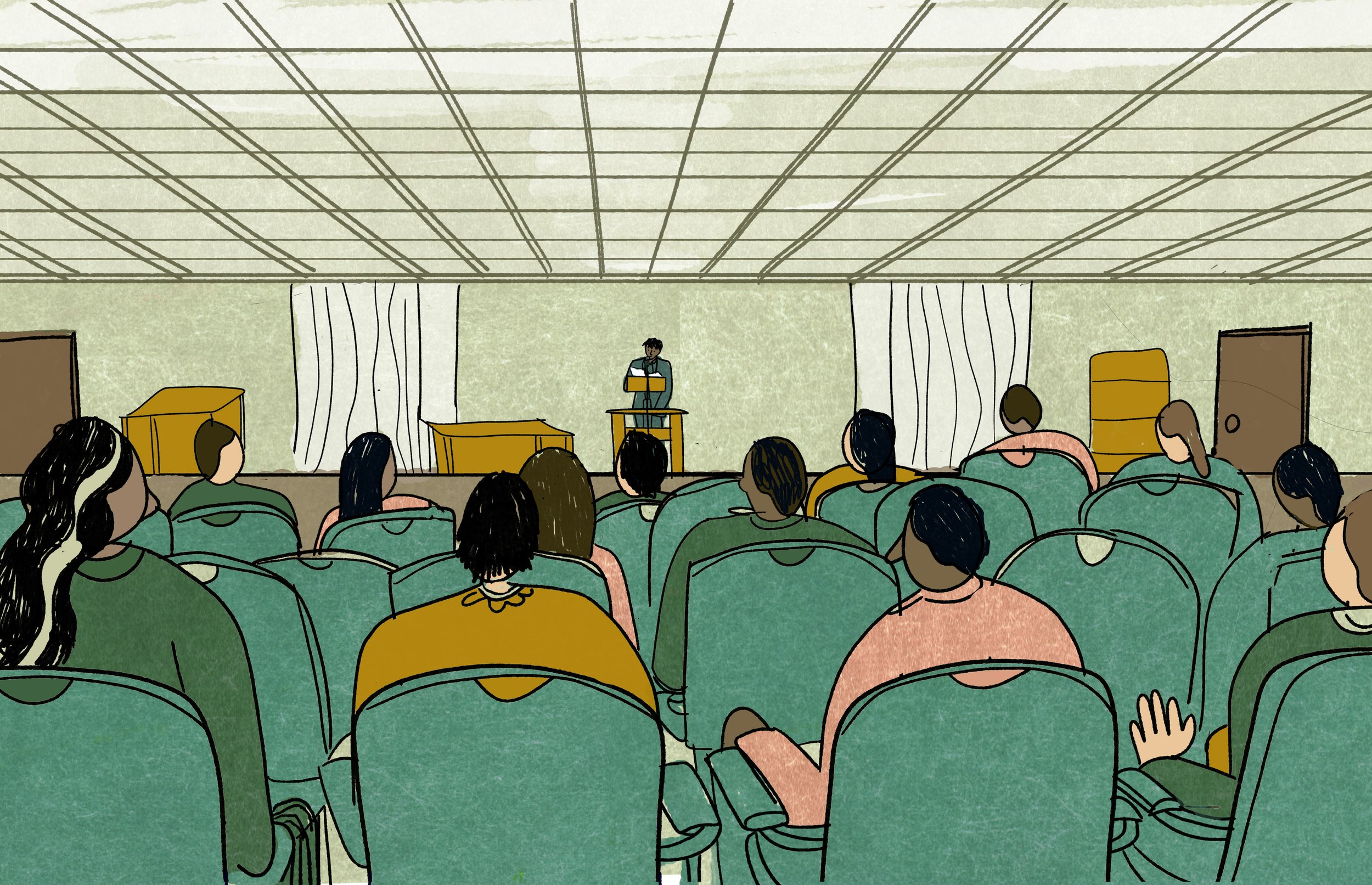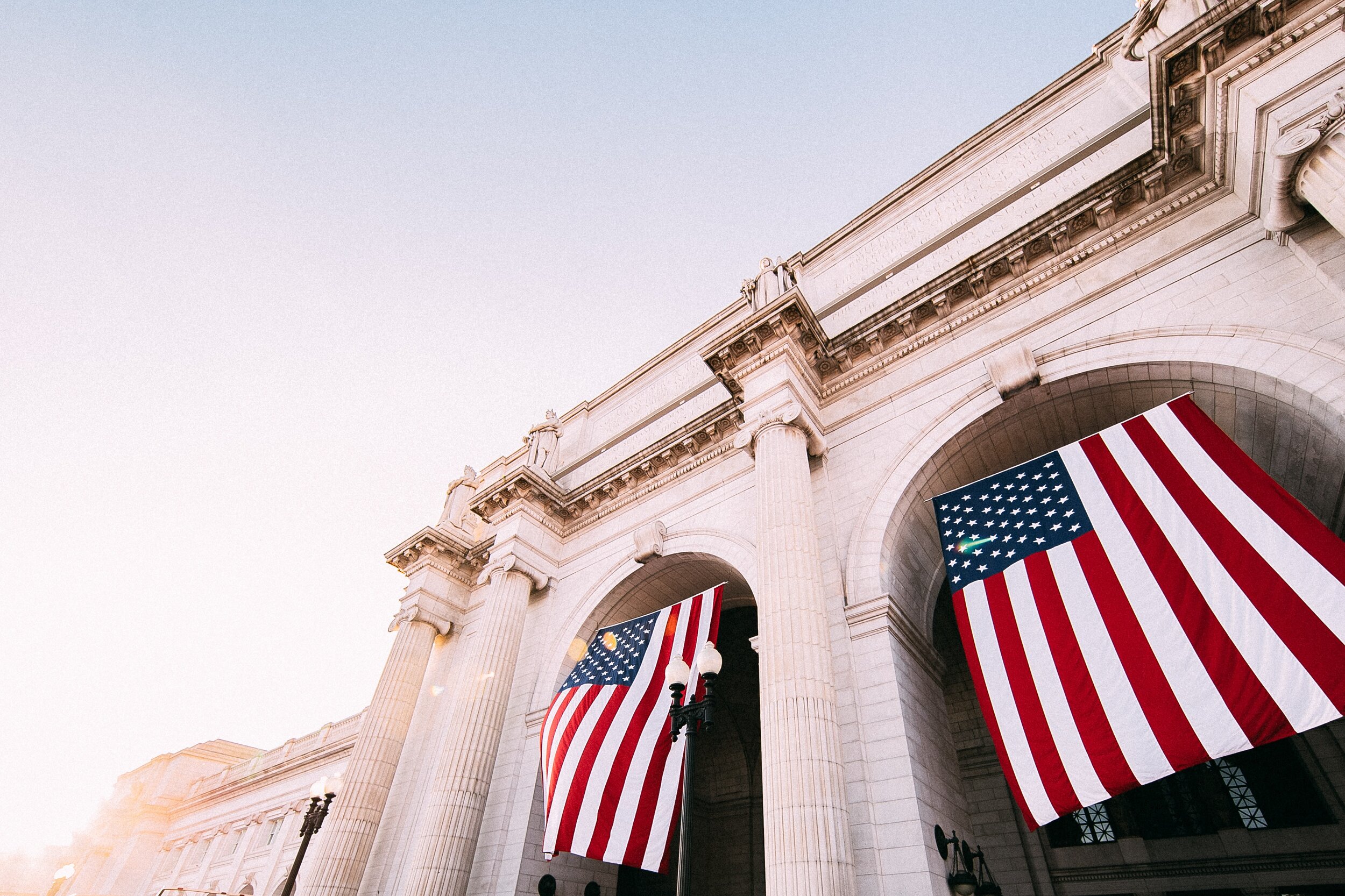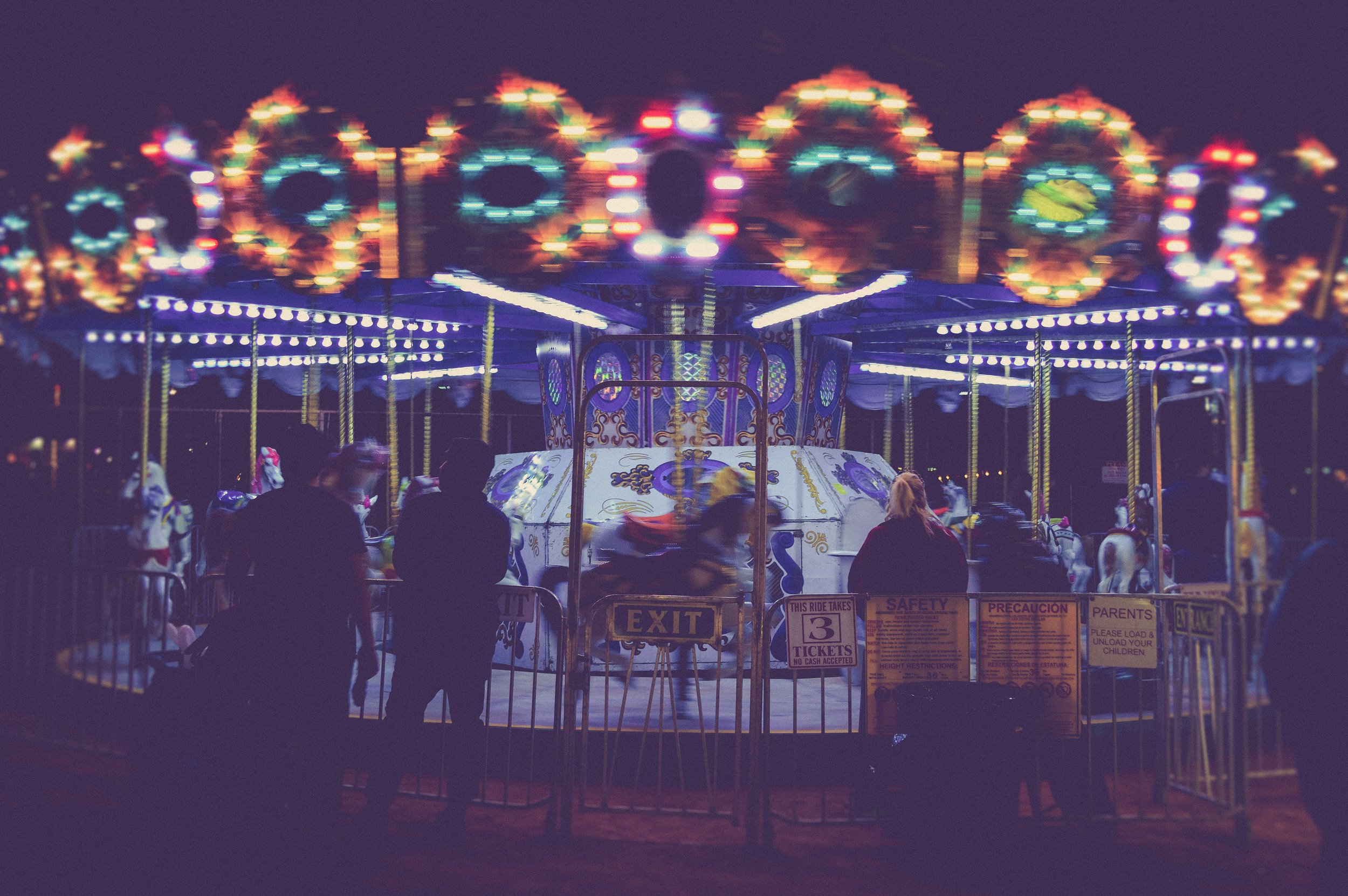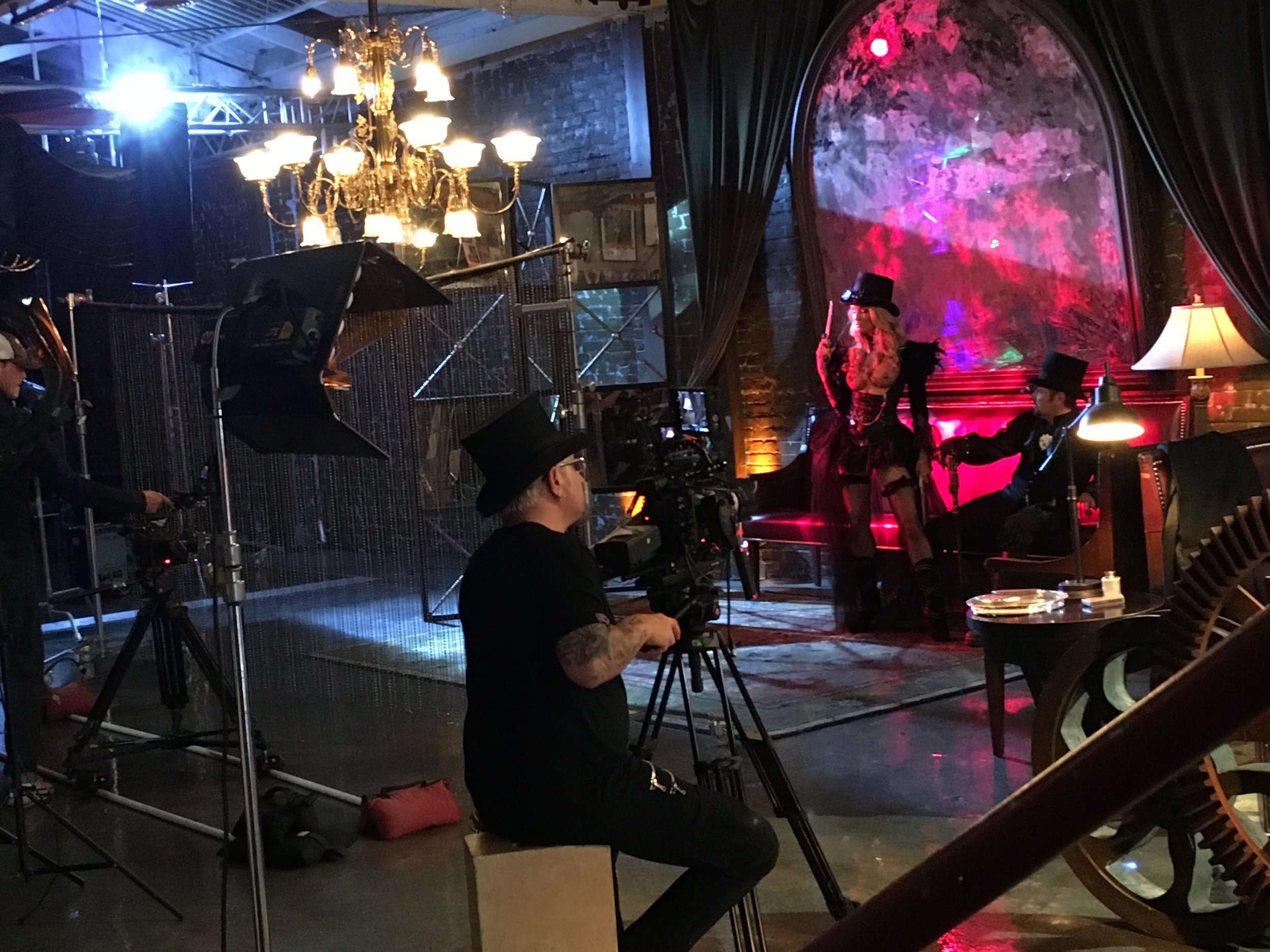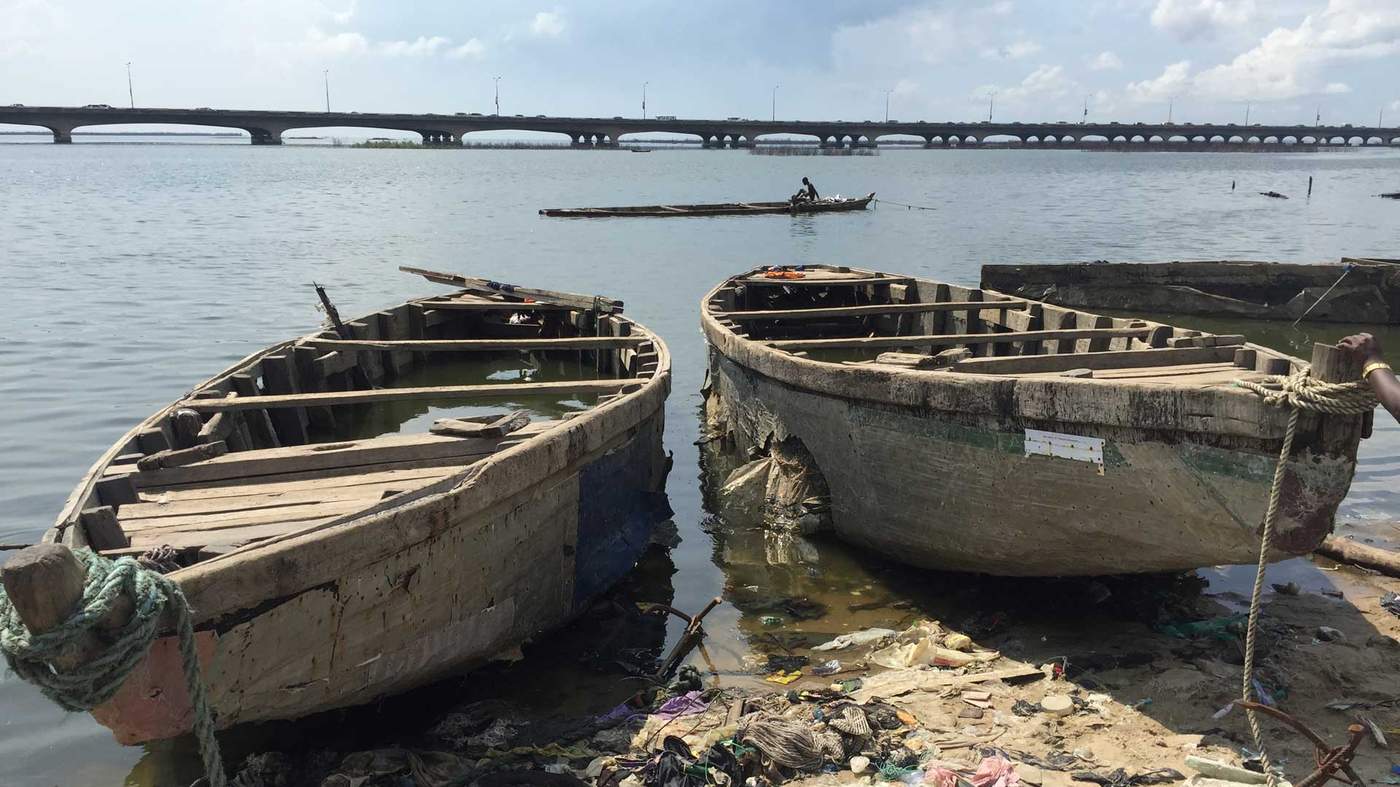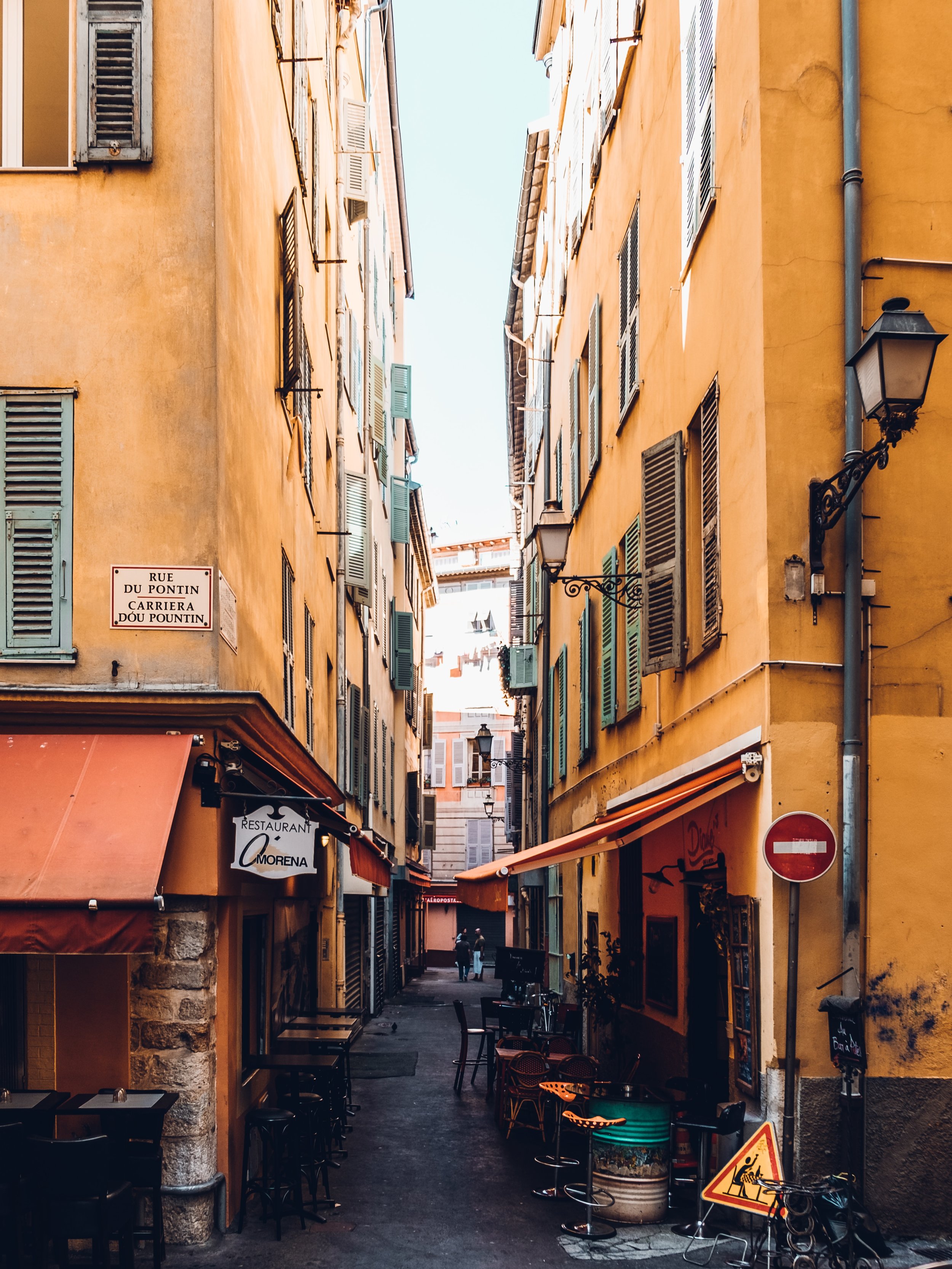While the World Was Watching Soccer

During the World Cup 2014, sports writer Aaron Gordon was reporting from Europe. He was meant to be covering soccer fandom, but instead he found himself in an 8-hour romance.
It was early July, 2014, and I was in Strasbourg, France—a picturesque medieval city that sits on the Rhine across from Germany. I had been hopping from city to city for the prior two and a half weeks, reporting on the World Cup: Mexico City to Buenos Aires to Santiago to Accra to Frankfurt to Amsterdam. An unorthodox approach to covering a soccer tournament taking place in Brazil, but in each city, I found a new story. I decided to go to Strasbourg to watch each half of the upcoming France-Germany match from their respective countries.
It was the assignment of a lifetime. How the World Watches, was the way the publication promoted it, and I intended to find out. Only nine months out of quitting my dull desk job where I spent most of my time following sportswriters I admired on Twitter to freelance full time, I was sure that if I threw myself at the sports world when it was at its best I would hit something worthwhile.
I was right about the first part. After seven flights to four continents in 17 days and eleven stories published, I saw more than I bargained for. There was the jubilee in Santiago when Chile beat Spain. In Accra, I witnessed a Ghanaian cook celebrate a goal against Germany so fervently that he ran out of the kitchen and never came back. People at their very best because the ball bounced the right way.
But there was so much ugliness too. When the sun went down, the Santiago celebration turned into a riot. In the swankiest hotel lobby in Accra, a bulbous American with a half-open Hawaiian shirt and a chomped-up cigar hanging out of his mouth bragged to me about how the locals were too clueless to protect their natural resources and he was there to reap the benefits. With every word he spat, his unbrushed teeth wafted stale, smokey breath into my nostrils. All the while, my fixer, a Ghanaian man, stood right beside me. When we left, I asked how he could listen to that filth. He shrugged. “There are many like him.”
“We spent the next few hours wandering past rustic, squeaky iron gates and balconies lined with bright red roses. Vintage turrets punctuated the rooftops.”
Overall, the assignment was turning into a quasi-failure. I had invested a significant amount of my own money into making this trip happen, but I tried to do too much. I was also tired. I had spent almost as much time in airports and airplanes as not, writing whenever I could squeeze a moment. This usually meant on an overnight flight. I was exhausted and worn down in a way I had never been before. My body was confused.
I was also lonely. I had been traveling alone, meeting friends here or there when possible, but otherwise deriving as much meaning as I could from buying coffee and sandwiches from smiling shopkeepers in lieu of true companionship. After almost three weeks of this, my loneliness superseded my exhaustion.
Image provided by the author.
Now, in Strasbourg, for the first time in the whole trip, I had a day to breathe. But, like those few seconds after you turn off the treadmill, my mind was still churning. I tried to put it at ease by promising my editors nothing at all for 24 hours.
Still trapped in the assignment mindset, I identified locations where I was likely to find a respite. So I hustled to Parc de l’Orangerie, nestled in the crook of an inlet’s bend from the Rhine to the city center. I sat in front of a weeping willow tree, which looked exactly how I felt, and breathed the clean summer air as deeply as my lungs allowed. I actively concentrated on the fact the air was not recirculated and blasted in my face by a vent I couldn’t control. I spent a solid hour on that soft, summer grass, taking lots of overexposed photos of two handsome but disgruntled turtles exhibiting the exact degree of mental capacity I longed for at that moment.
Eventually, I rested outside the majestic Gothic church in the city’s center. It looked like a big version of the drip castles I used to make on the beach with wet sand when I was a kid. It was a bright, sunny day where the humidity from the square’s fountains proved just enough to keep the heat at bay. Three-foot high benches surrounded the square on which people sat: teenagers gossiping, couples so close yet so lost in each other, panting dogs parked next to their owners.
I set my bag down and took some more photos of the church, the square, the people. I preferred some of the areas I had just been and was about to head back the way I came when I noticed the girl on the bench next to me. We exchanged smiles, which was just enough for me to convince myself it wasn’t yet time to go.
I took more photos and walked around, but she remained there, lying in the sun, intermittently shielding her eyes from the rays. She wasn’t on her phone or gazing in various directions as if waiting for someone. I got that sense that she was so at ease with her existence she was only in that spot due to inertia.
Finally, I had found another person who was exactly how I wanted to be.
Still, at that point in my life I had never approached woman on the street—nor have I since—and nothing to break up a perfectly relaxing summer day like having an exhausted, droopy man try and strike up conversation on the street. I couldn’t do that. I wouldn’t do that. Until the moment when she finally got up and started to walk away.
I quickly packed my bag and shuffled to catch up to her as she meandered down a one-way side street. The afternoon sun caught my shadow and projected it onto the sidewalk ahead of me. She seemed to see this and her posture stiffened. I asked if she was from around here before immediately chastising myself for being so lame. In any case, she wasn’t.
It was only then that I realized how utterly unprepared I was for literally any response she might offer. I hadn’t thought this far ahead, a terrible oversight considering this was precisely two seconds ahead of where I had thought. I made sure to walk a safe distance away from her, sticking to the middle of the cobblestone road, so I could extricate myself from this ill-conceived situation as soon as possible. But we exchanged the basic biographical information—she was from Quebec, and I from Washington, D.C.—before the street came to an end as it intersected another. We had to go left or right.
“I experienced the universe of difference between agreeing to not talk and having no one to talk to.”
“Which way are you going?” I asked.
She looked to the left, then to the right, and then turned to me for the first time and I could see her face clearly. Her brown eyes matched the freckles on her nose and her shoulder length hair. When she smiled back at me, I could see her upper front teeth, but not her lower ones.
“I don’t know,” she replied. “I don’t have anywhere to be.”
We stood there for a while, debating the merits of left versus right. Left was slightly uphill, but right would shortly end at a river.
After almost three weeks where every decision felt so fundamental—not just to my assignment but to my next destination and even my future as a journalist—I realized the antidote was not to give up on thinking entirely, but to relish in overanalyzing the most inconsequential decision possible.
I don’t remember what direction she chose, but I do remember that she chose it.
We spent the next few hours wandering past rustic, squeaky iron gates and balconies lined with bright red roses. Vintage turrets punctuated the rooftops. She was a student in Quebec and had come to Europe to visit her friend in Munich. The friend was supposed to meet her in Strasbourg, but it turned out the friend could not make it. She had a day to kill before her train which left the next morning. She was crashing at a hostel a bit outside of the city, which she accused of being “not good.”
I also learned her English was, to borrow her phrase, not good. I, of course, couldn’t speak a word of French. We managed stunted, simple exchanges, but anything more in depth or complicated required Google Translate, which back in 2014 was even less suited for conversation mediation than it is today. At times, she would get so frustrated or mentally exhausted she would let out an “ughh!” of annoyance. Afterwards, we would agree to not talk for a bit, and I experienced the universe of difference between agreeing to not talk and having no one to talk to.
We eventually decided to leave the historic city center where the houses leaned forward until the upper floors hung over the street and find the footbridge across the Rhine into Germany and get dinner. The approach to the bridge led down a dirt path, and she got a pebble stuck in her sandal. She put her hand on my shoulder to steady herself while she removed it. The path eventually turned to manicured grass lined on either side with unkempt bushes swaying in the breeze. Rectangular stepping stones were embedded in the mowed grass at perfectly even intervals. Ahead, the steel cables on the bridge rose from the incline like fingers from an outstretched hand, the last grasp from a drowning giant.
The walk was long and conversation stilted, but I was finally unwinding the spools of thought that had built up over the weeks. We had to keep to basic words, ones we normally shy away from when answering tough questions because of their decisiveness. At one point, she asked, “Do you like your job?” No one had asked me that before; not that bluntly. It’s always presented as a spectrum (how do you like your job?) or couched in euphemism (keeping busy?). But not this time. I couldn’t say “I went into sports journalism with a certain set of expectations about the industry and myself and I’m still trying to figure out where I fit in and how to get to the professional level to which I aspire.” I had to say “I thought it would be better.”
“I was sure that if I threw myself at the sports world when it was at its best I would hit something worthwhile.”
We stopped to get dinner at a restaurant across the river. By then, we had run out of things to talk about. She didn’t like soccer. She was from some small town I couldn’t understand, studying some scientific subject we never could properly translate. At one point we became obsessed with translating one word that Google was having none of. We bonded mostly in our frustration over our failure to communicate. Naturally, I can’t for the life of me recall what that word was.
Finally, she broke the awkward silence by saying she wasn’t looking forward to getting up the next morning. She had an early train, but she also had to take a bus to the train station and she wasn’t even sure what time the buses started running. She might have to call an expensive cab.
Lapsing back into my typical habit of using verbose language to dance around a point, I emphasized I didn’t mean to sound forward and didn’t want to imply anything untoward, but I happened to be staying right across the street from the train station. I hadn’t researched the hotel since I booked it on such short notice and I accidentally booked a room with two beds. I diagramed on the table the layout of the room and how the beds were on complete opposite sides and she was welcome to one of them if she liked.
We walked to her hostel to pick up her bags. The hostel was, in fact, not good. The bunk beds had thin, transparent curtains, the bathrooms were moldy, and there were a disconcerting number of shady old men wandering about. I wondered to what degree she was merely taking her chances with some doofy American versus some stereotypically gross hostel.
The sun was finally setting by the time we left for the bus stop back to the city center. I carried our smaller backpacks while she lugged her big one, the kind young people can be found carrying all across Europe every summer, throwing themselves at a continent in the hopes of hitting an adventure. I don’t know if she viewed coming back to my hotel with me as just another part of that adventure, or if the adventure had already fizzled out and she was positioning herself for the train to the next one. Either way, her trust cured my loneliness, which mattered more to me than anything that could possibly happen in the hotel room. When the bus arrived, we sat down next to each other in adjacent seats. Our bodies touched from shoulder to knee and I felt the coolness of her skin from the night breeze. We were closer than we had been all day, and the closest we would ever be.
Within a few hours, she would be packing the few belongings she bothered to remove and walking across the street to her train, bound for her friend and the European vacation she had anticipated. I would be preparing for the day’s work, planning my precise route from Germany to France in the 15 minutes between halves. I would file an article I knew wasn’t interesting, but it got published anyways after a cursory copy edit; standard operating procedure for almost every sports site for which I would write. It would be the last story of the assignment, but not the last time I would be disappointed in myself for writing a story I didn’t like.
We bid each other goodnight and turned out the lights, each of us in our respective beds. I don’t know what was going through her mind after that, but not much was going through mine. I slept peacefully that night.
We didn’t talk much at all on that final bus ride, but I thought about the movie Before Sunrise in which a young American man traveling around Europe meets a young French woman and they fall in love for a day before vowing to meet in the same spot one year later. They intentionally exchange no contact information, thus placing their entire relationship on their dedication to return. The movie later became a trilogy filmed every nine years with the same actors and director. The third film had been released the previous year, in which the young smitten couple were now a fraught middle-aged pair with three kids trying to hold onto the final flickering sparks from the fire they once had.
Every once in a while, I think about the girl in Strasbourg, what became of her, and if she finds herself asking the same things about me. But I have no way to find out. Just like the characters in the movie, we never exchanged any information. I don’t think it was some grand oversight on our part; I like to think we both got exactly what we needed.
But even if I wanted to look her up, I wouldn’t know where to begin. To be perfectly honest, I don’t even remember her name.
ABOUT THE AUTHOR
Aaron Gordon is a freelance writer. He covers transit for the Village Voice and writes a weekly newsletter about the New York City subway. He no longer writes about sports.
Header photo by Hernan Lucio.


